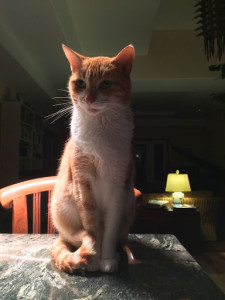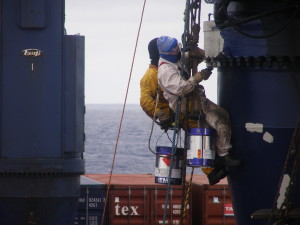Floating on the breast of the ocean, lifting in the slow surge and counter-surge to and from the beach, I feel like Gulliver all alone on a strange, moving continent. The water buoys me up like a solid element, yet my ears and hands and feet are in it, cool, but sun-warm. I smell unseen fish and taste the salt in my nostrils. I hear the sound of the whole ocean crackling in my ears like a million tiny crustaceans dashing themselves against a reef, all in stereo, inside my head.
Turning my feet into the approaching wave, I see them rise into it first, and my head follows bonelessly. The surface as it comes toward me in the late afternoon light is bubbling silver. I breast the wave and sink, breast the wave and sink, rising and subsiding like an eel.
I am no fool: I know there is danger below. In my mask and snorkel in other waters I have steered around the rocks, and I have followed sharks and rays and morays. But here I am caught between the deeps of ocean and the deeps of heaven, pinned on the surface, safe in a sandwich of sea and sky. If I squint into the setting sun my eyelashes make a rainbow, and I am making my own magic.
© Sandra Shaw Homer, 2015










